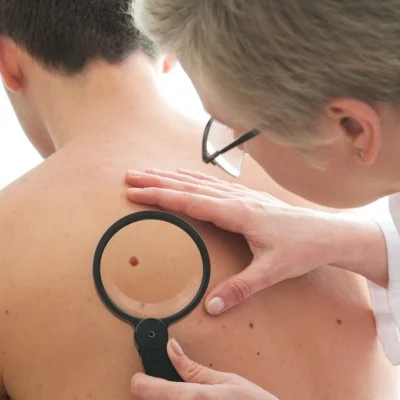Delays in the diagnosis of skin cancer, attributed to the COVID-19 lockdowns, have resulted in an estimated 100,000 years of life being lost and a financial impact of €7.1 billion across Europe, a recent study suggests.
This research, disclosed last Friday in the Jama Network Open journal, underscores the severe outcomes of the 2020 and 2021 lockdowns and social distancing protocols that were enforced to curb the spread of COVID-19. These measures led to significant delays in the detection of melanoma, a prevalent form of skin cancer known for its potential to metastasise.
Constructed around data from over 50,000 melanoma patients at two cancer centres in Switzerland and Italy, and supplemented with information from Hungary, the UK, and Belgium, the study provided an analysis of the premature mortality (years of life lost) and the potential direct and indirect financial repercussions in Europe.
Dr. Kaustubh Adhikari, a statistical geneticist at University College London and one of the study's authors, remarked on the unintended consequences of lockdown measures, which saw numerous screenings being postponed and treatments delayed. This led to many individuals' skin cancer advancing to more severe stages, necessitating costlier treatments and diminishing the likelihood of successful outcomes.
The research estimated the financial toll of these delays at approximately €7.1 billion in Europe, predominantly due to indirect costs such as sick leave, loss of productivity, and premature death. Melanoma ranks as the fifth most common cancer among both men and women in the EU, representing four percent of all new cancer cases in 2020. That year, the EU saw over 100,000 new melanoma cases and more than 16,000 fatalities, as reported by the European Cancer Information System (ECIS).
Dr. Elisabeth Roider, a co-lead author from the University Hospital of Basel, highlighted the critical importance of preventive healthcare, advising that future pandemic preparedness plans should holistically consider the potential indirect impacts on a broad spectrum of health conditions. The study's authors caution that their findings, though significant, come with limitations due to the extrapolation of data from two cancer centres to the entire European context and variances in lockdown measures and healthcare systems across Europe.
This investigation aligns with previous studies indicating a reduction in new cancer diagnoses during the pandemic, such as a significant drop in referrals and colonoscopies for suspected colorectal cancer, as found in a 2021 study by the University of Oxford and Cancer Research UK. Dr. Adhikari emphasised the profound implications of delayed diagnoses and treatments, not only in terms of years of life lost and economic burden but also in the diminished quality of life for countless individuals. He advocates for learning from the pandemic to better balance healthcare priorities in the event of future pandemics.
Source: Euronews
Image Credit: iStock


![Tuberculosis Diagnostics: The Promise of [18F]FDT PET Imaging Tuberculosis Diagnostics: The Promise of [18F]FDT PET Imaging](https://res.cloudinary.com/healthmanagement-org/image/upload/c_thumb,f_auto,fl_lossy,h_184,q_90,w_500/v1721132076/cw/00127782_cw_image_wi_88cc5f34b1423cec414436d2748b40ce.webp)



